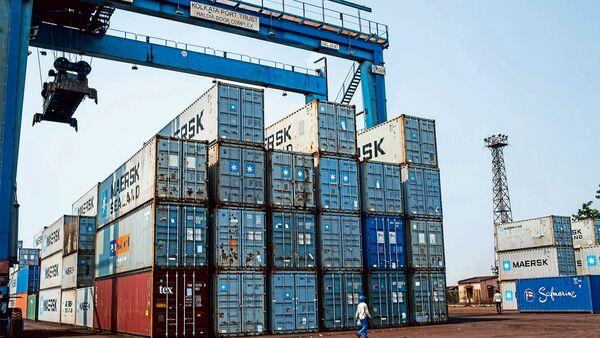
India, Australia Conclude Tenth Round Of Trade Talks, Next Meeting In November
The 11th round of talks is scheduled to take place in November in New Delhi, the ministry added.
Mint had reported on 16 August that dialogues had commenced with key trading partners .
The two countries had implemented an interim trade agreement in December 2022, and are now focused on expanding its scope. In the current CECA negotiations, India is pushing to eliminate non-tariff barriers that impede the export of agricultural products, such as grapes, to Australia.
Expanding agricultural trade and addressing non-tariff barriersBoth sides have also held formal inter-sessional meetings, with negotiations conducted across five tracks as agreed under the Economic Cooperation and Trade Agreement (ECTA), along with discussions on 14 new areas including micro, small and medium enterprises, innovation, agritech, and critical minerals.
India has already granted access to Australian products under 70% of its tariff lines, while Australia has agreed to eliminate tariffs on all products from India.
Australia is seeking further tariff reductions from India on additional products, while India remains focused on removing non-tariff barriers that affect the export of agricultural products like okra, pomegranate, and grapes, according to experts.
“Although Australia has agreed to zero tariffs on these products, non-tariff barriers continue to hinder exports," noted Ajay Srivastava, founder, Global Trade Research Initiative (GTRI), a think tank. Discussions are on regarding pharmaceutical pricing controls on generic medicines in Australia, a major concern for India, Srivastava said.
One of the key sticking points in the CECA negotiations is the finalization of the rules of origin, which were not fully negotiated at the time of signing the interim agreement, Srivastava added.
Additionally, there are challenges related to investment and services, including mutual recognition agreements and market access for service sectors.
According to the commerce ministry, intense discussions were held on each of the negotiation tracks, leading to greater clarity and a better understanding of the remaining provisions. The goal was to reach convergence on these outstanding issues.
The Indian delegation was led by Rajesh Agrawal, the chief negotiator and additional secretary in the Department of Commerce, while the Australian delegation was headed by Ravi Kewalram, the chief negotiator and First Assistant Secretary in the Department of Foreign Affairs and Trade.
“The meeting saw discussions and negotiations to narrow down the differences through better understanding of each other's proposals and the way to bring in convergence. Efforts were made by both sides keeping in mind the domestic sensitivities for reaching a balanced outcome,” the ministry said.
As part of the ongoing dialogue, the Australian side proposed holding the inaugural meeting of the India-Australia Agri Tech Forum (IAATF) in New Delhi on 23 September. This forum, newly established by Australia, will bring together Indian agricultural stakeholders, including industry representatives, research institutions, and government officials.
The primary objective of this forum is to strengthen mutually beneficial relationships by exploring opportunities for focused activities around technology transfer and knowledge sharing in the agriculture and horticulture sectors, the ministry added.
Read this | Exports of key commodities fall in April-July amid rising trade deficit
Australia remains a significant trading partner for India in the Oceania region, with bilateral merchandise trade reaching approximately $24 billion in the 2023-24 fiscal year. India's exports to Australia during this period amounted to $7.94 billion, while imports stood at $16.15 billion. The trade volume between the two countries has hovered around the $25 billion mark since the 2021-22 fiscal year.
The interim trade agreement with Australia has significantly boosted India's ability to meet its demand for pulses . Since the agreement was signed in December 2022, Australia has emerged as a major supplier, with imports of Australian lentils reaching 366,433 tonnes from January to July 2024, accounting for 66.3% of India's total lentil imports, according to government data. In 2023, India imported 775,994 tonnes of lentils from Australia, representing 51.25% of its total imports. Legal Disclaimer:
MENAFN provides the
information “as is” without warranty of any kind. We do not accept
any responsibility or liability for the accuracy, content, images,
videos, licenses, completeness, legality, or reliability of the information
contained in this article. If you have any complaints or copyright
issues related to this article, kindly contact the provider above.


















Comments
No comment